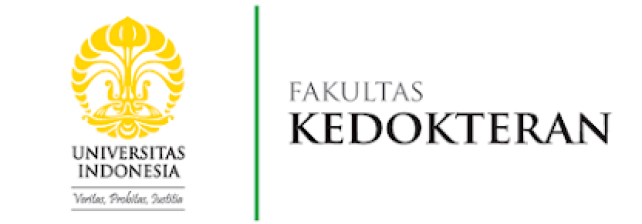Faculty of Medicine, Universitas Indonesia (FMUI) have published a paper with titled “Universal Health Coverage in Indonesia: Concept, Progress, and Challenges” in International accredited journal, The Lancet. The launching was held in IMERI FMUI Ballroom, UI Salemba Campus on Thursday (20/12/2018).
The event was opened by an opening speech from The Dean of FMUI, Prof. Dr. dr. Ari Fahrial Syam, SpPD-KGEH, MMB, which then followed by opening speech from The Vice Rector of Research and Innovation Prof. Dr.rer.nat. Rosari Saleh; General Director of Science and Technology Resources Ministry of Research, technology and Higher Education Republic of Indonesia Prof. dr. Ali Ghufron Mukti, M.Sc, PhD; and Special Staff of the Minister of Health of the RI Division of Health Development and Financial, dr. Donald Pardede, MPPM.
During his speech, The Dean of FMUI state his appreciation for all the authors. “This article may become a new standard for the academics. This is a prove that the university is a place for the authors so that they could contribute in a process for creating science-based policies, which are able to provide concrete ideas for long-term health care solutions.” He said.
Since 2014, Indonesia has applied Universal Health Coverage (UHC) system, called Jaminan Kesehatan Nasional (JKN). This JKN system is implemented by Badan Penyelenggara Jaminan Sosial (BPJS) Kesehatan. The purpose of JKN is to ensure health services access for all society.
Until October 2018, there are about 203 million people or around 74.41% of Indonesian population have JKN as their insurance. This data creates the fact that BPJS Kesehatan is an insurance system with the largest single premium payment scheme in the world.
However, in its implementation, Indonesia faces several challenges such as financial sustainability, the low level of participation from middle-class informal workers, and the discrepancy between insurance coverage and health service readiness.
The scientific study highlights the concepts, developments, challenges from health policy and the process of JKN. It is written that Indonesia has succeeded in creating an adaptive and flexible UHC scheme to accommodate diverse conditions and needs in ensuring financial risk protection, as well as access to safe, effective and affordable health services for all levels of society.
“This study suggested that Indonesian system of UHC is on the right tract. However, several things should be done to ensure the sustainability of this system” said dr. Rina Agustina, MSc, PhD, as the head of the authors. “The right investation on mother health case, hygiene, healthy life style, good nutritional intake quality, as well as regular physical activities are important to reduce the BPJS’s claim expenses in the future.” She added.
What makes us proud is that this scientific study is the first scientific study which was fully written and led by Indonesian researchers’ team and was successfully published in The Lancet.
The author’s team is led by a lecture from Medical Nutrition Department FMUI, dr. Rina Agustina, MSc, PhD, with all the authors are Teguh Dartanto, PhD (Faculty of Economics and Bussiness U); Prof. Dr. dr. Ratna Sitompul, SpM(K) (FMUI); Kun Aristiati Susiloretni, PhD (Politeknik Kesehatan Semarang); Suparmi, MKM(
Health Research and Development Agency, Ministry of Health RI); Prof. dr. Endang L. Achadi, MPH, DrPH (Faculty of Public Health UI) Prof. Dr. dr. Akmal Taher, SpU(K) (Ministry of Health RI); dr. Fadila Wirawan, MSc (FMUI); Prof. dr. Saleha Sungkar, DAP&E, MS, SpParK (FMUI); Prof. dr. Pratiwi P. Sudarmono, PhD, SpMK (FMUI); Anuraj H. Shankar, DrPH(Harvard T.H. Chan School of Public Health); dan Prof. dr. Hasbullah Thabrany, MPH, DrPH (Faculty of Public Health UI).
The launching which was also attended by the Director of the BPJS Kesehatan, Prof. Dr. dr. Fachmi Idris, M.Kes; Prof. Dr. Mari Elka Pangestu, B.Ec, M.Ec from the Center for Strategic and International Studies; and Senior Editor Executive of The Lancet, Dr. William Summerskill. It is mentioned that from the study, the authors provided three recommendations which could create a strong health system and provide maximum impact.
The first recommendation is
The first recommendation is to propose the acceleration of membership and collection of contributions, especially for workers in the informal sector, pregnant women and children. The second recommendation is to create an innovation to do preventive and promotive approaches to support the curative approach of UHC. These innovations include Universal Risk Coverage (URC) and Universal Cause Coverage (UCC).
The last recommendation is to strengthen front-line activities including community-based activities and data-based digital health information systems. These will improve efficiency and guide the creation of solutions to Indonesia’s health problems in various conditions.
Full paper is available at: https://www.thelancet.com/journals/lancet/article/PIIS0140-6736(18)31647-7/fulltext
Public Relations FMUI
